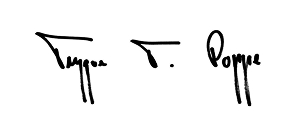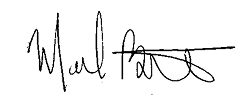



The scientific community opposes ONP. This open letter signed by 14 scientists was first published in MorgunblaðIð on June 6, 2024.

Open net pen salmon farms are an extinction threat to wild Atlantic salmon. Wild salmon populations are at historic lows worldwide. This once abundant species has declined by 75 percent across the North Atlantic. Declines are greatest near industrial-scale salmon farms along salmon migration routes. The numbers have plunged in all salmon-farming countries – 50 percent in Norway and 70 percent in Scotland. Canadian researchers warn that aquaculture is pushing wild Atlantic salmon toward extinction in Newfoundland. Iceland is a final frontier for wild Atlantic salmon and researchers warn that Icelandic populations are also in decline.
Tens of millions of farmed salmon die every year from disease, parasites, and the effects of rising ocean temperatures. A peer-reviewed study in the journal Nature this year determined that a staggering 865 million farmed salmon died in mass mortality events in the last decade. The scientists blamed rising ocean temperatures, overuse of antibiotics and pesticides to combat diseases and parasites, and the industry’s aggressive attempts to increase production. In Norway, 62.3 million farmed salmon died from disease and treatment against salmon lice in 2023 alone.
These floating feedlots pollute the marine environment and endanger other species. Salmon are raised in crowded net pens floating near coastlines. A single farm can contain a million or more fish in sea cages that dump excess feed, excrement, and chemicals into the surrounding waters. An early study estimated that a small salmon farm with 200,000 fish produces as much waste as a city of 65,000. Pesticides, antibiotics, and other chemicals used in salmon farms spread several kilometers through the water column, threatening other marine life.
Salmon farming is unsustainable, and its rapid rise is contributing to food insecurity in low-income countries and depleting global fishing stocks. It takes more than 1kg of wild-caught fish ground into fishmeal to produce 1kg of farmed salmon. Each year more than half a million tons of small fish are swept up by giant trawlers off West Africa for aquaculture feed. A peer-reviewed study in the journal PLOS said 90 percent of those fish are suitable for human consumption. Despite industry greenwashing, farming salmon is not the solution to the world’s protein crisis. It is part of the problem.
Record ocean temperatures mean more mass mortalities at salmon farms and greater threats to wild salmon. Commercial fisheries in Iceland are experiencing damage from record ocean temperatures. For farmed salmon, warming water contains less oxygen and more disease and parasites. The loss of a record 17.4 million farmed salmon in Scotland in 2023 was blamed on rising water temperatures. A prolonged warm spell contributed to a record mass die-off of 2.6 million fish at 10 salmon farms in Canada owned by Mowi in 2019.















